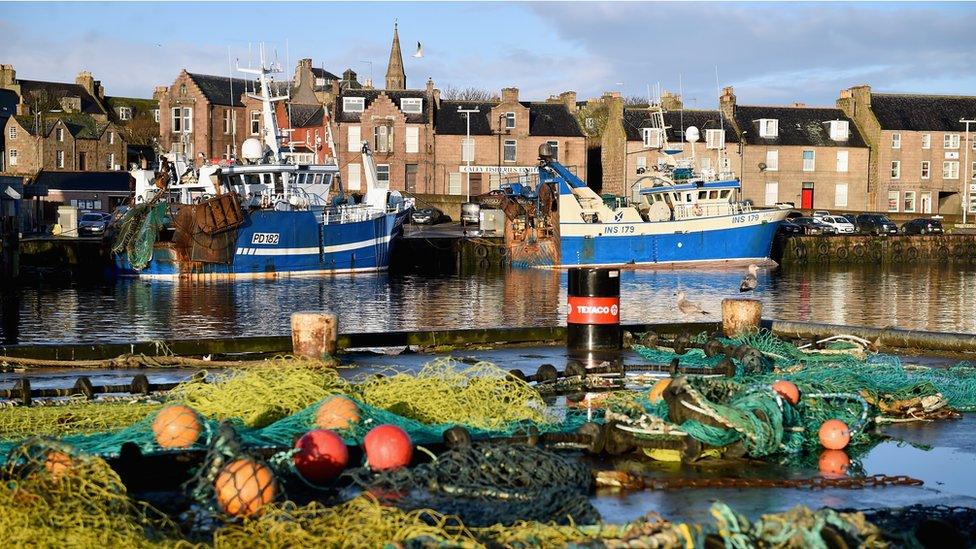Pulse fishing: Is it OK to 'electrocute' fish?
- Published
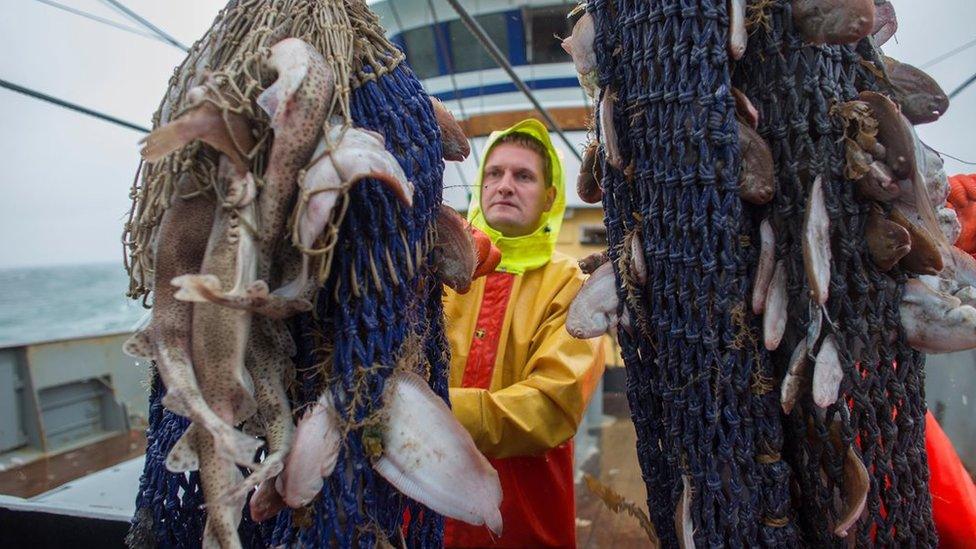
The Netherlands is the biggest user of pulse fishing in the EU
Members of the European Parliament have voted to ban commercial fishing using an electric current in EU waters, so-called pulse fishing.
Opponents say the method is equivalent to putting a Taser in the water.
The European Commission and the Dutch government say it is better for the environment than traditional trawling.
The Netherlands has been testing the controversial technique as part of scientific research.
How is electricity used in fishing?
This is about a technique called pulse fishing, where trawlers use nets that generate an electric current.
Fish - particularly sole - are stunned, which forces them to float upwards, making them easier to catch.
What does the law say?
Like the use of explosives and poison, pulse fishing is technically illegal in the EU. The US, China and several other countries have a ban too.
Is electrofishing safe and humane?
But there is an exception which allows EU countries to catch up to 5% of their annual fishing quota in the North Sea using "innovative methods" in the name of research.
Pulse fishing counts as one of those innovative methods.
Why is there a campaign against it?
The French conservation group Bloom is leading the campaign against electric fishing.
They say the technique harms the fish it is designed to catch and kills marine life that is supposed to be left alone.
"If you electrocute marine life you have an ecosystem-wide problem," says Claire Nouvain, Bloom's president.
"You wipe out the resource in the ocean. You transform it into a real desert."
She is also the one who says it amounts to putting a Taser into the water.
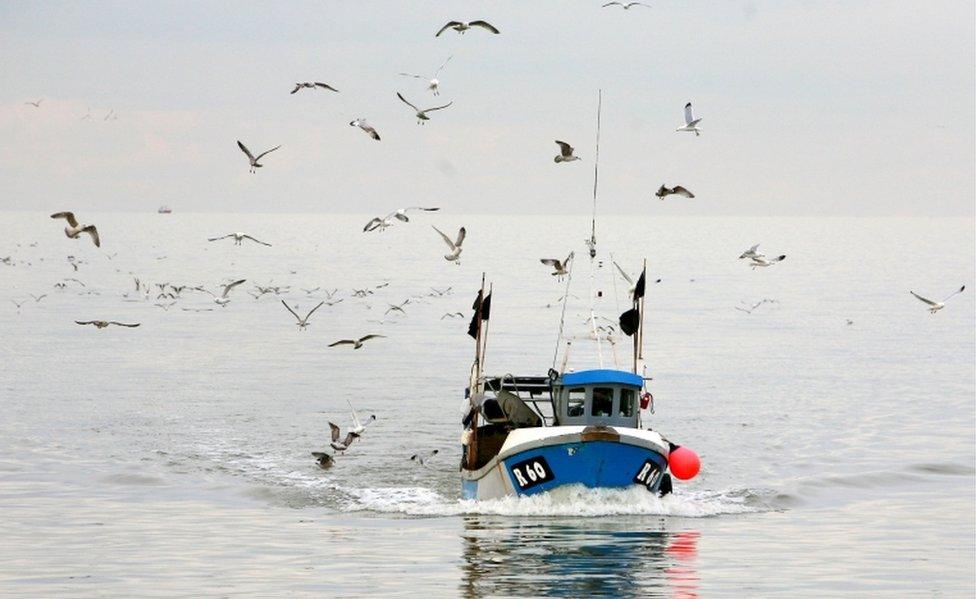
Groups representing small-scale fishing fleets across Europe have spoken out against pulse fishing
Bloom is supported by organisations representing smaller-scale fishermen in France and the UK.
The luxury hotel chain Relais & Châteaux is on board, along with a group of Michelin-starred chefs who say they will not cook with pulse-caught fish.
The British and French supermarkets Waitrose and Intermarché have also said they will not sell fish caught in this way.
Why do the Dutch like it?
The Netherlands is the biggest user of this method in the EU. The Dutch government has issued permits to around 80 trawlers. ("Err... how many boats do you need for an experiment?" ask campaigners).
The Dutch point to studies which suggest their pulse-equipped fleet use 46% less fuel and catch 50% less unwanted marine life than other trawlers.
"The Dutch position is clear: pulse fishing is the future," according to Dutch Agriculture Minister Carola Schouten.
"This innovation is better for the environment, does less damage to our seas and the life there, saves fuel and has less unwanted by-catch."
She said the MEPs' vote to ban the method was "difficult to understand".
"It seems like emotions and sentiments prevailed over independent research results and facts. That's very unfortunate.
"We will continue to defend the interests of Dutch pulse fishers in Europe and will fight this decision."
What is happening now?
There were cheers and applause in the European Parliament as the result of the vote was announced.
The parliament will now enter into long negotiations with the European Commission and member states to agree a package of measures to streamline regulations for fishing.
The Netherlands can continue testing pulse fishing until the new legislation comes into force.
- Published2 December 2017
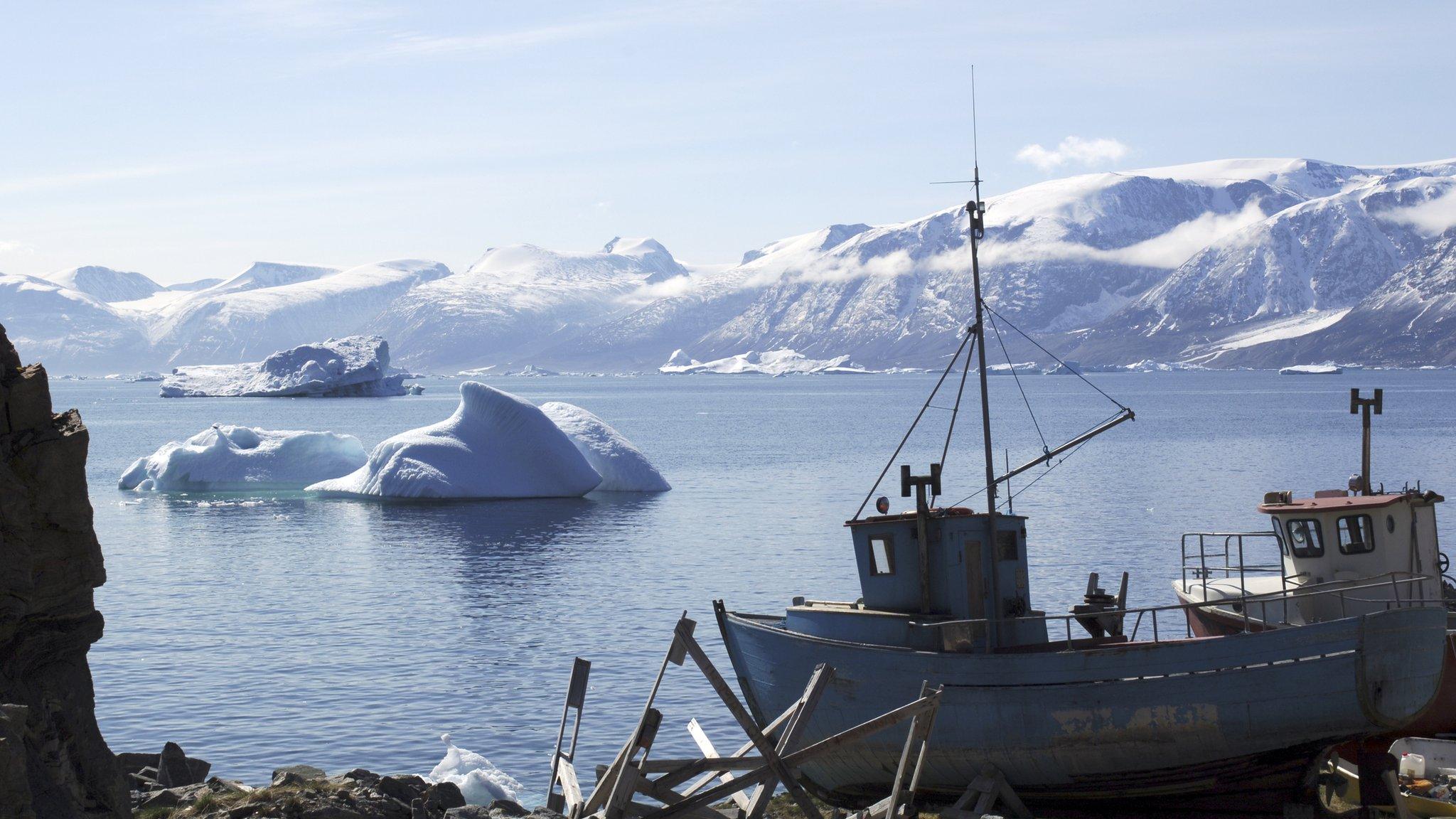
- Published15 January 2018
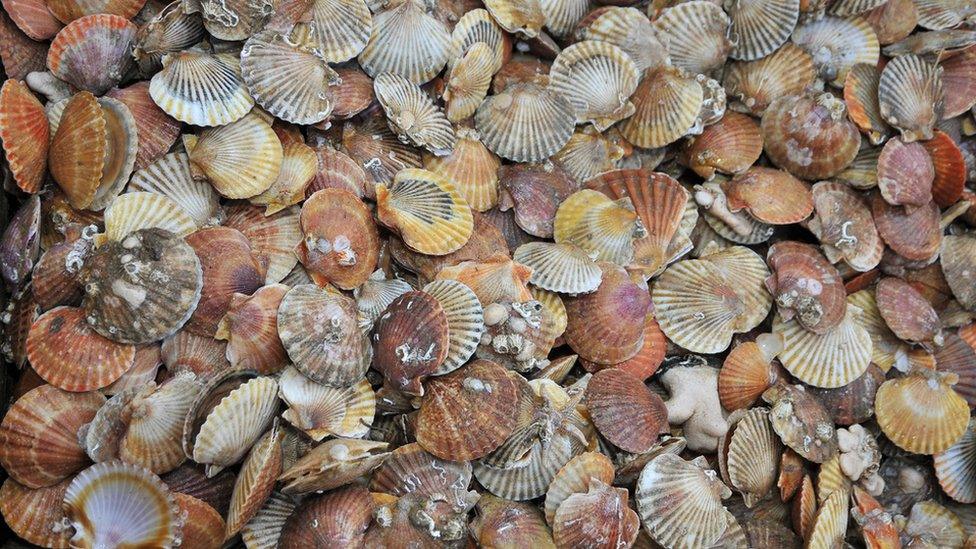
- Published13 December 2017
